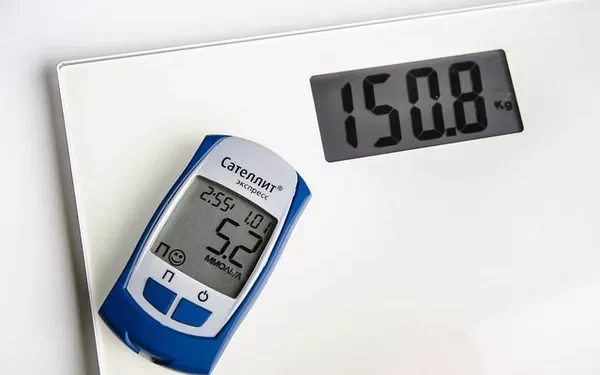Monitoring blood sugar levels is a crucial aspect of managing diabetes effectively. Fasting blood sugar levels, measured when you wake up in the morning before eating or drinking anything (often referred to as fasting glucose levels), provide valuable insights into how well your diabetes management plan is working. This article will discuss what your blood sugar levels should ideally be upon waking up, factors that can influence these levels, and strategies for maintaining optimal fasting blood sugar levels.
Understanding Fasting Blood Sugar Levels
Fasting blood sugar levels reflect the amount of glucose (sugar) present in your blood after a period of fasting, usually overnight while you sleep. For individuals without diabetes, normal fasting blood sugar levels typically range between 70 and 100 milligrams per deciliter (mg/dL). However, for those with diabetes, target fasting blood sugar levels may vary depending on individual health goals and treatment plans.
Target Fasting Blood Sugar Levels for Diabetes Management
The American Diabetes Association (ADA) provides general guidelines for target fasting blood sugar levels in individuals with diabetes:
- For most adults with diabetes: Between 80 and 130 mg/dL
- Before meals: 80-130 mg/dL
- After meals (postprandial): Less than 180 mg/dL
These targets may vary based on individual factors such as age, overall health, duration of diabetes, presence of complications, and other medical conditions. It is essential to work closely with your healthcare provider to establish personalized blood sugar targets that are appropriate for you.
Interpreting Fasting Blood Sugar Levels
Here’s how to interpret your fasting blood sugar levels:
- Normal: Typically, fasting blood sugar levels between 70 and 100 mg/dL are considered normal for individuals without diabetes.
- Prediabetes: Fasting blood sugar levels between 100 and 125 mg/dL may indicate prediabetes, where blood sugar levels are higher than normal but not yet in the diabetic range.
- Diabetes: Fasting blood sugar levels consistently above 126 mg/dL on two separate occasions indicate diabetes.
Consistently elevated fasting blood sugar levels in individuals with diabetes can increase the risk of long-term complications such as heart disease, kidney disease, nerve damage, and eye problems. Monitoring and managing fasting blood sugar levels effectively are essential to reduce these risks and maintain overall health.
Factors Affecting Fasting Blood Sugar Levels
Several factors can influence fasting blood sugar levels, making them fluctuate from day to day and even throughout the night:
Diet and Meal Timing
The types and amounts of food consumed, as well as the timing of meals and snacks, can significantly impact fasting blood sugar levels. Eating large meals or high-carbohydrate meals late at night can cause blood sugar levels to rise, affecting fasting levels in the morning.
Physical Activity
Regular physical activity helps lower blood sugar levels by increasing insulin sensitivity and promoting glucose uptake by muscles. Lack of physical activity or inconsistent exercise routines can lead to higher fasting blood sugar levels.
Medications
The type, dosage, and timing of diabetes medications (such as insulin or oral medications) can influence fasting blood sugar levels. Adherence to prescribed medication schedules is essential for maintaining stable blood sugar levels.
Stress and Illness
Stress hormones and illness can cause blood sugar levels to rise, even during sleep. Managing stress through relaxation techniques and ensuring proper treatment of any illnesses or infections can help stabilize fasting blood sugar levels.
Hormonal Changes
Hormonal fluctuations, such as those occurring during puberty, pregnancy, or menopause, can affect insulin sensitivity and blood sugar levels. Monitoring blood sugar levels closely during these times and adjusting treatment plans as necessary is crucial.
Sleep Quality
Poor sleep patterns, including insufficient sleep or irregular sleep schedules, can impact blood sugar control. Aim for adequate and restful sleep to help maintain stable fasting blood sugar levels.
Alcohol Consumption
Alcohol can interfere with blood sugar regulation, causing either hypoglycemia (low blood sugar) or hyperglycemia (high blood sugar). Limit alcohol consumption and be mindful of its effects on blood sugar levels.
Dawn Phenomenon and Somogyi Effect
- Dawn Phenomenon: Many people experience a natural rise in blood sugar levels in the early morning hours, often due to hormonal changes that occur during sleep. This is known as the dawn phenomenon.
- Somogyi Effect: In some cases, low blood sugar levels during the night trigger the release of stress hormones, causing a rebound effect of high blood sugar levels in the morning. This is known as the Somogyi effect.
Understanding these factors can help you and your healthcare team identify patterns in your fasting blood sugar levels and make appropriate adjustments to your diabetes management plan.
Strategies for Achieving Optimal Fasting Blood Sugar Levels
Achieving and maintaining optimal fasting blood sugar levels requires a comprehensive approach that includes lifestyle modifications, medication adherence (if prescribed), and regular monitoring. Here are some strategies to help you manage your fasting blood sugar levels effectively:
1. Follow a Balanced Meal Plan
- Eat regular meals and snacks: Spread carbohydrate intake evenly throughout the day to prevent large fluctuations in blood sugar levels.
- Choose whole grains: Opt for whole grains such as brown rice, quinoa, whole wheat bread, and oats, which have a lower glycemic index and provide sustained energy.
- Include lean protein sources: Incorporate lean proteins such as poultry, fish, tofu, beans, and legumes to help stabilize blood sugar levels.
2. Monitor Carbohydrate Intake
- Count carbohydrates: Monitor your carbohydrate intake at meals and snacks to help determine appropriate portion sizes and maintain consistent blood sugar levels.
- Limit refined sugars and sweets: Minimize consumption of sugary foods and beverages, which can cause rapid spikes in blood sugar levels.
3. Engage in Regular Physical Activity
- Exercise regularly: Aim for at least 150 minutes of moderate-intensity aerobic activity per week, such as brisk walking, cycling, or swimming, to improve insulin sensitivity and blood sugar control.
- Incorporate strength training: Include resistance exercises two to three times per week to build muscle mass and further enhance insulin sensitivity.
4. Take Medications as Prescribed
- Follow your medication regimen: Take prescribed diabetes medications, including insulin or oral medications, as directed by your healthcare provider to help maintain stable blood sugar levels.
- Monitor for side effects: Be aware of potential side effects of medications and communicate any concerns to your healthcare team.
5. Monitor Blood Sugar Levels Regularly
- Check blood sugar levels: Monitor your fasting blood sugar levels regularly using a blood glucose meter to track progress and identify trends over time.
- Keep a log: Record your blood sugar readings, meals, physical activity, medications, and any factors that may affect blood sugar levels to share with your healthcare team.
6. Manage Stress and Prioritize Sleep
- Practice stress management: Engage in relaxation techniques such as deep breathing, meditation, or yoga to reduce stress hormones that can impact blood sugar levels.
- Establish a sleep routine: Maintain consistent sleep and wake times to promote adequate and restful sleep, which supports optimal blood sugar control.
7. Stay Hydrated and Limit Alcohol
- Drink water: Stay hydrated by drinking plenty of water throughout the day to support kidney function and help regulate blood sugar levels.
- Limit alcohol consumption: If you choose to drink alcohol, do so in moderation and with food to minimize its impact on blood sugar levels.
8. Work Closely with Your Healthcare Team
- Attend regular appointments: Schedule regular visits with your healthcare provider, diabetes educator, and registered dietitian to review your diabetes management plan and make necessary adjustments.
- Discuss concerns: Communicate any challenges or concerns you may have with managing your blood sugar levels effectively to receive guidance and support.
By incorporating these strategies into your daily routine and maintaining open communication with your healthcare team, you can take proactive steps toward achieving and maintaining optimal fasting blood sugar levels. Remember that individualized care and personalized adjustments may be necessary based on your unique health needs and goals.
See also: How is Blood Glucose Monitored in Hospitals?
Conclusion
Achieving and maintaining optimal fasting blood sugar levels is a key component of diabetes management. By understanding your target blood sugar goals, identifying factors that can influence fasting blood sugar levels, and implementing effective strategies to support blood sugar control, you can enhance your overall health and reduce the risk of diabetes-related complications. Consistent monitoring, healthy lifestyle choices, medication adherence (if prescribed), and regular communication with your healthcare team are essential for successful diabetes management. Empower yourself with knowledge and take proactive steps to prioritize your well-being through effective blood sugar monitoring and management.
Related topics:
Where Can I Buy a Blood Sugar Monitor?


























